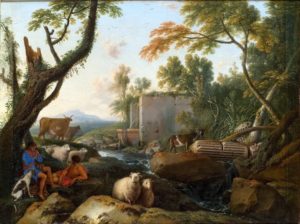
Materialism and Science
This is why it’s so important for us to teach our students sound doctrine and how it informs scientific thinking. We need Christian people who can use science to its fullest and in its proper place.

This is why it’s so important for us to teach our students sound doctrine and how it informs scientific thinking. We need Christian people who can use science to its fullest and in its proper place.

God may be a God of order governing the universe, but without the justification we receive through Christ, our scientific endeavor is still a grasping after the wind.

When we look at the night sky, there’s nothing we can do with the heavens but look up and wonder. Ultimately, that’s what science is: wondering in awe at God’s creation.

As we classify the various gifts we have from God in nature, we are better able to understand what place each has in our lives as Christians, how we as Christians should act regarding each gift, and what place we ourselves have in creation as human beings.

Jesus is the one who literally holds the very atoms of our universe together; and when a scientist keeps this in mind, his faith in his gracious, loving, orderly God becomes central to the way he conducts the art of science.

If we properly understand man’s nature, then we will teach him of Christ’s righteousness and we will teach him virtue.

The Church has long understood nature to be God’s second book (second to the Holy Scriptures). From nature we can learn of the existence of God, his power, orderliness, providence, and beauty, plus the objective nature of reality.